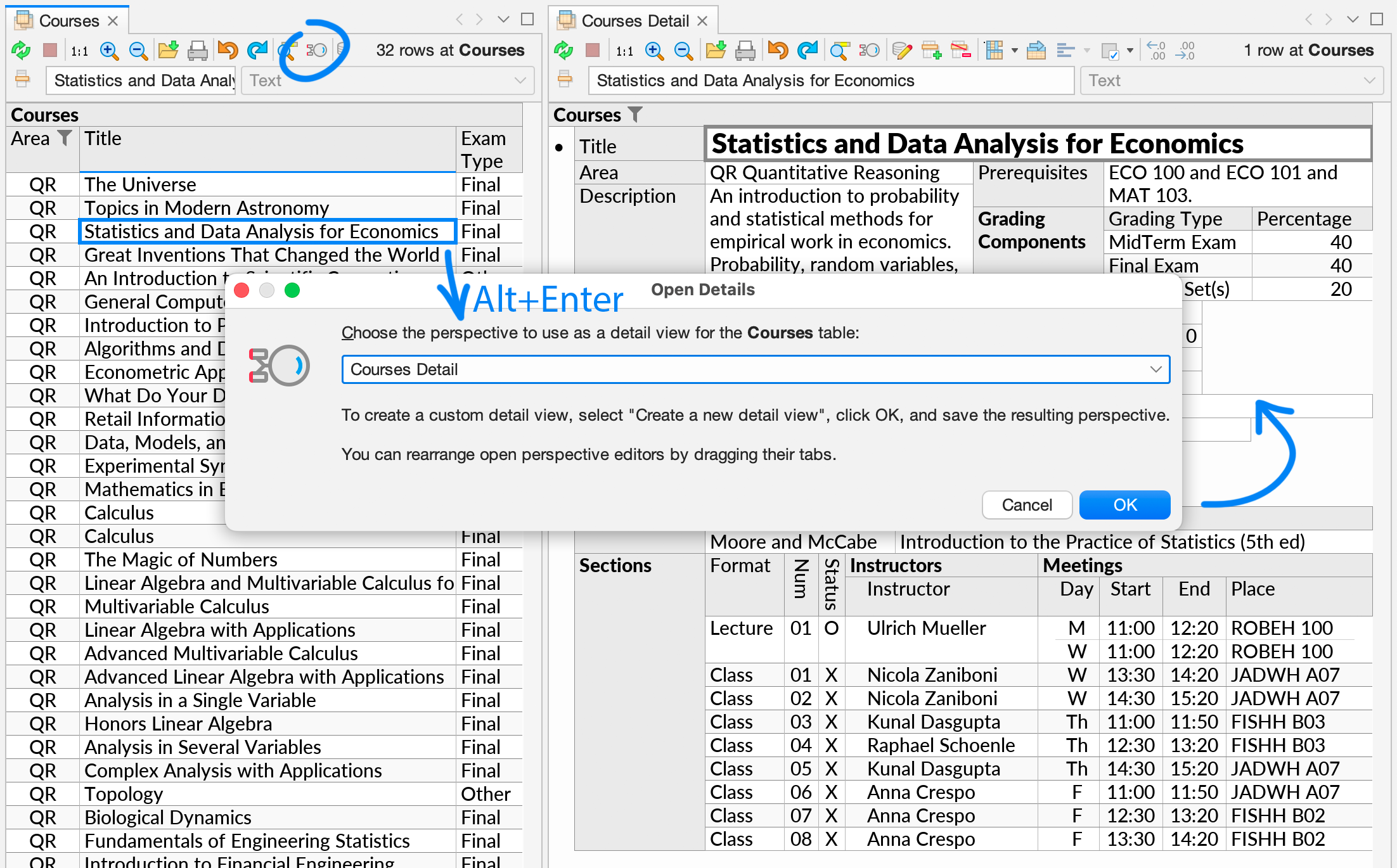Open Details
The Open Details action () provides a fast way to jump from a table row or foreign key value in one perspective to a detail view in a separate perspective. The two perspectives are shown in a split-screen by default.

To use, place the cell cursor on a table row or foreign key value of interest, and press Alt+Enter (Option+Enter on Mac). Ultorg will prompt to create a new detail view, or use an existing saved one. When you click OK, Ultorg will open the detail view and apply a filter such that the originally selected record becomes visible.
Pressing Alt+Enter again will move the keyboard focus to the detail view. You can press Ctrl+W (⌘W on Mac) to close any current perspective.
Customizing the Detail View
The default detail view shows all fields in the data table using a single-column auto-generated form layout. Joins and formulas from the original perspective may also be included. An open detail view will be reused automatically until closed.
If desired, you can customize the detail view using any of Ultorg's regular query and formatting actions. For example, you can include data from related tables via Fields & Joins, or switch to a multi-column form layout via Format→Set Auto-Layout Type.
To save your customizations for later, use File→Save Perspective on the modified detail view. To qualify as a detail view for a given data table, a saved perspective must use said table as its data source at the root level, and must use a non-tabular auto-layout type.
You can move the detail view to a different monitor, or collapse the split-screen, by dragging the tab of the perspective editor.
Opening URL Links
If the selected cell has a URL link in it (e.g. https://www.google.com/), you can press Alt+Enter (Option+Enter on Mac) to open it, like in Google Sheets:

This is a secondary behavior of the Open Details action.
Composing URLs in Formulas
In some cases it can be useful to construct URLs with a formula, based on data in the perspective. These URLs can then be conveniently opened with Alt+Enter.
In formulas, the urlEncode function can be used in combination with the concat function to construct links with query parameters based on data in the database.
For example, the formula below creates a URL which will search Google for a given row's course title when opened:
concat("https://www.google.com/search?q=", urlEncode([Title]))
You can then open any of the generated URL with Alt+Enter as usual:
